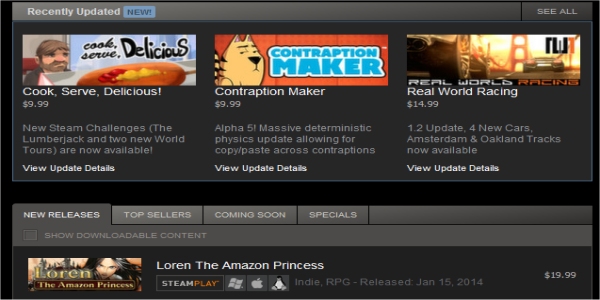Valve Wins Against VZBV, No Pre-Owned Games For Steam

The VZBV have had it out for Valve; the consumer rights group has been tracking closely the intentions and motivations of Valve and Steam. After the amendment of the subscriber agreement two years ago, the VZBV went full-in on getting Valve to adopt more consumer-friendly ways when it comes to digital game resale and ownership trading.
MCV received updated word on the legal case between the VZBV and Valve in the German court of law, and it looks like pre-owned game trading won't be coming to Steam.
According to law firm Osborne Clark, they offered a summary of the case, stating...
“German consumer watchdog group Verbraucherzentrale Bundesverband argued that if copyright law, through the doctrine of exhaustion, allowed the resale of used computer game DVDs, then a clause in a standard contract restricting the transfer of the online account necessary to play the game was at odds with the basic principles of statutory law and therefore unreasonable, abusive and, ultimately, unenforceable,”“So is the Regional Court of Berlin going against Court of Justice of the European Union case law? Not quite. The judges’ comments at the oral hearing held a few days before the verdict transpired do indicate that they do not consider the doctrine of exhaustion to be applicable to digitally distributed computer games at all.”
This probably comes as a blow to a bunch of gamers looking to remove game licenses from their library in hopes of exchanging them for another game or some small monetary gain through Steam.
Digital resale could have worked, however it's not a feature that Valve wants to put on the table and it's something the VZBV badly wanted to get worked into the infrastructure of Steam's storefront.
The VZBV had hoped to gamers would be able to sell digital titles to others, but that was squashed in court, as mentioned by Clark. The firm went on to say that...
“Even as far as physically distributed games are concerned, and the doctrine of exhaustion must indubitably be applied, the court seems to agree with the BGH that the doctrine of exhaustion does not render the no-transfer clauses in Valve’s terms of service unenforceable.“For video game industry stakeholders in Germany, the EU and beyond, this ruling may not be entirely surprising. It is another strong signal that digital and hybrid distribution strategies limiting the potential for software piracy and protecting distribution networks against grey imports are feasible and the contractual clauses implementing them will be enforced by the courts.”
It does, in a way, make sense. Albeit, it's a sensible method for corporations that protects IP at the expense of the consumer. It's understandable that copyright is protected under non-transferable license services such as Steam or GamersGate or Origin, but at the same time a user is subjugated to the restrictions of what content ownership (or lack thereof) is presented by the service agreement.
Your Daily Blend of Entertainment News
In the end, gamers will just have to hope that Steam doesn't die in the long run, and will have to continue to buy and gift games to friends as far as content transfers go.
I imagine this isn't the last time we'll see this scenario play out in a court room, and I doubt it's the last time we'll hear about a consumer rights group challenging the mechanism of transferring licenses between service users.
Staff Writer at CinemaBlend.

